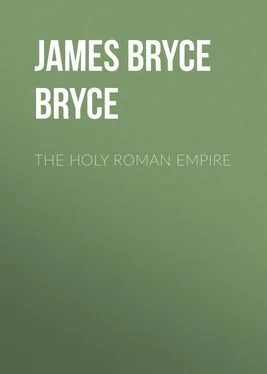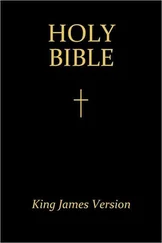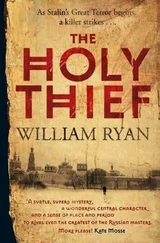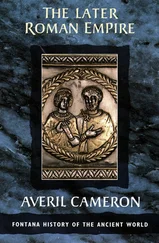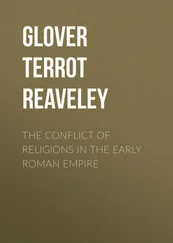James Bryce - The Holy Roman Empire
Здесь есть возможность читать онлайн «James Bryce - The Holy Roman Empire» — ознакомительный отрывок электронной книги совершенно бесплатно, а после прочтения отрывка купить полную версию. В некоторых случаях можно слушать аудио, скачать через торрент в формате fb2 и присутствует краткое содержание. Жанр: foreign_antique, foreign_prose, Историческая проза, на английском языке. Описание произведения, (предисловие) а так же отзывы посетителей доступны на портале библиотеки ЛибКат.
- Название:The Holy Roman Empire
- Автор:
- Жанр:
- Год:неизвестен
- ISBN:нет данных
- Рейтинг книги:4 / 5. Голосов: 1
-
Избранное:Добавить в избранное
- Отзывы:
-
Ваша оценка:
- 80
- 1
- 2
- 3
- 4
- 5
The Holy Roman Empire: краткое содержание, описание и аннотация
Предлагаем к чтению аннотацию, описание, краткое содержание или предисловие (зависит от того, что написал сам автор книги «The Holy Roman Empire»). Если вы не нашли необходимую информацию о книге — напишите в комментариях, мы постараемся отыскать её.
The Holy Roman Empire — читать онлайн ознакомительный отрывок
Ниже представлен текст книги, разбитый по страницам. Система сохранения места последней прочитанной страницы, позволяет с удобством читать онлайн бесплатно книгу «The Holy Roman Empire», без необходимости каждый раз заново искать на чём Вы остановились. Поставьте закладку, и сможете в любой момент перейти на страницу, на которой закончили чтение.
Интервал:
Закладка:
The Popes appeal to the Franks.
Some accounts add that Charles was offered, in the name of the Roman people, the office of consul and patrician. It is at least certain that here begins the connection of the old imperial seat with the rising German power: here first the pontiff leads a political movement, and shakes off the ties that bound him to his legitimate sovereign. Charles died before he could obey the call; but his son Pipin (surnamed the Short) made good use of the new friendship with Rome. He was the third of his family who had ruled the Franks with a monarch's full power: it seemed time to abolish the pageant of Merovingian royalty; yet a departure from the ancient line might shock the feelings of the people. A course was taken whose dangers no one then foresaw: the Holy See, now for the first time invoked as an international power, pronounced the deposition of Childeric, and gave to the royal office of his successor Pipin a sanctity hitherto unknown; adding to the old Frankish election, which consisted in raising the chief on a shield amid the clash of arms, the Roman diadem and the Hebrew rite of anointing. The compact between the chair of Peter and the Teutonic throne was hardly sealed, when the latter was summoned to discharge its share of the duties. Twice did Aistulf the Lombard assail Rome, twice did Pipin descend to the rescue: the second time at the bidding of a letter written in the name of St. Peter himself 42 42 Letter in Cod. Carol. (Mur. R. S. I. iii. [2.] p. 96), a strange mixture of earnest adjurations, dexterous appeals to Frankish pride, and long scriptural quotations: 'Declaratum quippe est quod super omnes gentes vestra Francorum gens prona mihi Apostolo Dei Petro exstitit, et ideo ecclesiam quam mihi Dominus tradidit vobis per manus Vicarii mei commendavi.'
.
Pipin patrician of the Romans, A.D. 754.
Aistulf could make no resistance; and the Frank bestowed on the Papal chair all that belonged to the exarchate in North Italy, receiving as the meed of his services the title of Patrician 43 43 The exact date when Pipin received the title cannot be made out. Pope Stephen's next letter (p. 96 of Mur. iii.) is addressed 'Pipino, Carolo et Carolomanno patriciis.' And so the Chronicon Casinense (Mur. iv. 273) says it was first given to Pipin. Gibbon can hardly be right in attributing it to Charles Martel, although one or two documents may be quoted in which it is used of him. As one of these is a letter of Pope Gregory II's, the explanation may be that the title was offered or intended to be offered to him, although never accepted by him.
.
Import of this title.
As a foreshadowing of the higher dignity that was to follow, this title requires a passing notice. Introduced by Constantine at a time when its original meaning had been long forgotten, it was designed to be, and for awhile remained, the name not of an office but of a rank, the highest after those of emperor and consul. As such, it was usually conferred upon provincial governors of the first class, and in time also upon barbarian potentates whose vanity the Roman court might wish to flatter. Thus Odoacer, Theodoric, the Burgundian king Sigismund, Clovis himself, had all received it from the Eastern emperor; so too in still later times it was given to Saracenic and Bulgarian princes 44 44 The title of Patrician appears even in the remote West: it stands in a charter of Ina the West Saxon king, and in one given by Richard of Normandy in A.D. 1015. Ducange, s. v.
. In the sixth and seventh centuries an invariable practice seems to have attached it to the Byzantine viceroys of Italy, and thus, as we may conjecture, a natural confusion of ideas had made men take it to be, in some sense, an official title, conveying an extensive though undefined authority, and implying in particular the duty of overseeing the Church and promoting her temporal interests. It was doubtless with such a meaning that the Romans and their bishop bestowed it upon the Frankish kings, acting quite without legal right, for it could emanate from the emperor alone, but choosing it as the title which bound its possessor to render to the Church support and defence against her Lombard foes. Hence the phrase is always ' Patricius Romanorum ;' not, as in former times, ' Patricius ' alone: hence it is usually associated with the terms ' defensor ' and ' protector .' And since 'defence' implies a corresponding measure of obedience on the part of those who profit by it, there must have been conceded to the new patrician more or less of the positive authority in Rome, although not such as to extinguish the supremacy of the Emperor.
Extinction of the Lombard kingdom by Charles king of the Franks.
A.D. 774.
So long indeed as the Franks were separated by a hostile kingdom from their new allies, this control remained little better than nominal. But when on Pipin's death the restless Lombards again took up arms and menaced the possessions of the Church, Pipin's son Charles or Charlemagne swept down like a whirlwind from the Alps at the call of Pope Hadrian, seized king Desiderius in his capital, assumed himself the Lombard crown, and made northern Italy thenceforward an integral part of the Frankish empire. Proceeding to Rome at the head of his victorious army, the first of a long line of Teutonic kings who were to find her love more deadly than her hate, he was received by Hadrian with distinguished honours, and welcomed by the people as their leader and deliverer. Yet even then, whether out of policy or from that sentiment of reverence to which his ambitious mind did not refuse to bow, he was moderate in claims of jurisdiction, he yielded to the pontiff the place of honour in processions, and renewed, although in the guise of a lord and conqueror, the gift of the Exarchate and Pentapolis, which Pipin had made to the Roman Church twenty years before.
Charles and Hadrian.
It is with a strange sense, half of sadness, half of amusement, that in watching the progress of this grand historical drama, we recognise the meaner motives by which its chief actors were influenced. The Frankish king and the Roman pontiff were for the time the two most powerful forces that urged the movement of the world, leading it on by swift steps to a mighty crisis of its fate, themselves guided, as it might well seem, by the purest zeal for its spiritual welfare. Their words and acts, their whole character and bearing in the sight of expectant Christendom, were worthy of men destined to leave an indelible impress on their own and many succeeding ages. Nevertheless in them too appears the undercurrent of vulgar human desires and passions. The lofty and fervent mind of Charles was not free from the stirrings of personal ambition: yet these may be excused, if not defended, as almost inseparable from an intense and restless genius, which, be it never so unselfish in its ends, must in pursuing them fix upon everything its grasp and raise out of everything its monument. The policy of the Popes was prompted by motives less noble. Ever since the extinction of the Western Empire had emancipated the ecclesiastical potentate from secular control, the first and most abiding object of his schemes and prayers had been the acquisition of territorial wealth in the neighbourhood of his capital. He had indeed a sort of justification – for Rome, a city with neither trade nor industry, was crowded with poor, for whom it devolved on the bishop to provide. Yet the pursuit was one which could not fail to pervert the purposes of the Popes and give a sinister character to all they did. It was this fear for the lands of the Church far more than for religion or the safety of the city – neither of which were really endangered by the Lombard attacks – that had prompted their passionate appeals to Charles Martel and Pipin; it was now the well-grounded hope of having these possessions confirmed and extended by Pipin's greater son that made the Roman ecclesiastics so forward in his cause. And it was the same lust after worldly wealth and pomp, mingled with the dawning prospect of an independent principality, that now began to seduce them into a long course of guile and intrigue. For this is probably the very time, although the exact date cannot be established, to which must be assigned the extraordinary forgery of the Donation of Constantine, whereby it was pretended that power over Italy and the whole West had been granted by the first Christian Emperor to Pope Sylvester and his successors in the Chair of the Apostle.
Читать дальшеИнтервал:
Закладка:
Похожие книги на «The Holy Roman Empire»
Представляем Вашему вниманию похожие книги на «The Holy Roman Empire» списком для выбора. Мы отобрали схожую по названию и смыслу литературу в надежде предоставить читателям больше вариантов отыскать новые, интересные, ещё непрочитанные произведения.
Обсуждение, отзывы о книге «The Holy Roman Empire» и просто собственные мнения читателей. Оставьте ваши комментарии, напишите, что Вы думаете о произведении, его смысле или главных героях. Укажите что конкретно понравилось, а что нет, и почему Вы так считаете.
